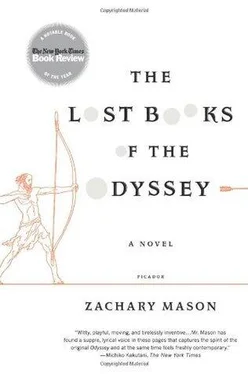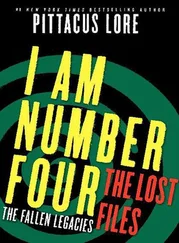
Alexander’s deathbed was in a river-side pavilion within Babylon’s high walls. He had been wounded and gone back to the battle line so many times that he had thought he was immortal, but now he knew he was dying. A week ago there had been hope but since then he had faded, although he could still move his head and part of his left arm. His wife Rukshana tended to him, the bloom of her beauty unwilted despite the years with the army under the hard desert sun. Some days his eyes watered with love when she came in to bathe him. Others, he blamed her for his frailty.
Alexander reflected on the contrivance of his legend. Since he was a boy he had longed to be Achilles, who had never known a moment’s doubt or shied away from death even when he knew it was rushing to meet him. Alexander had carefully promoted his identification with the ancient hero, arranging his wars with an eye to the picturesque. The race around the tomb had been planned since the starlit summer night in Athens when he and Hephaestion had decided to invade Persia. He had not slept at all the night before Gaugamela — only through a great exertion of will had he refrained from summoning his generals to go through the battle plan one last time. In the morning he had pretended to oversleep, his arm cast over his face, taking deep, even breaths and occasionally affecting a snore. In India he had been well aware that his supply lines were overextended but had wanted it said that his ambition was limitless, and had pushed his men by inches till he got the gentle mutiny he wanted.
I, he thought, am made of weaker stuff than Achilles and if I am remarkable at all it is for my invention. I have set out to be Achilles and ended up no more than Odysseus of endless contrivance. If I were Achilles I would have died young and at the height of my glory, beloved by all and feared by all, but since I am Odysseus I will suffer an interminable old age and in its good time death will come from the sea.
In that moment Alexander detested his empire, a castle built on sand that he knew would not survive him by a week — already his generals were circling. He wanted to go home to Pella, *linger in the women’s quarters, have his mother stroke his hair, hear the laughter echoing in the baths, see the snakes emerge from their shrine to lap up milk with flickering tongues.
With a sense of profound revelation he heard rather than thought the words, “Odysseus returned and so shall I.” He saw himself rising up out of bed, lurching toward the door and then striding along the sunlit arcades and alamedas of Babylon, going through the massive lion-carved gates through which ten horsemen could pass abreast, and finally out into the blinding desert where through the grace of the gods, who had often loved and now pitied him, a chariot waited to bear him across the hot sand to the cold sea and a black ship to bear him home.
That evening he lost the use of his voice, and then his hand, and then his eyes, and then he died.
Great strife followed. After several burials his body was disinterred and carried in a golden casket to its final resting place in his most famous city, Egyptian Alexandria, under the eye and reign of Ptolemy.
*Alexander the Great, king of Macedon, is reciting a verse from book seventeen of the Iliad , a copy of which he kept under his pillow.
†In 334 B.C. Alexander invaded and conquered the vast, tottering Persian Empire. The Greek world, which had long considered Persia a threat, saw Alexander’s invasion as a reprise of the Trojan War, which was, at that point, nearly a millennium past.
‡Alexander’s best friend and right-hand man.
*A boyhood friend of Alexander’s and one of his generals. Later in his career he became Pharaoh of Egypt.
*The capital of the Macedonian kingdom.
I could not think of myself as old but my world had become a traveler’s tale. I thought I should be happy with wealth and lands, son and fame, but I was not, for all that a constant stream of visitors came from far away and thought it a privilege to sit at my table and hear my stories. Though I was approaching my seventieth year I went to the gymnasium daily so that my guests would not wait till I had left and then say, “Can this be the man who was Odysseus?”
Sometimes I wondered if the attention was deserved. In any event the good burghers of Ithaca Town were delighted with my notoriety as it kept the inns full and the market bustling. One of the more enterprising hostelers told me that I should charge my guests an honorarium, a familiarity for which Laertes would have had him flogged, when he was king, but I let it pass.
One day I realized that I had told the stories of the cyclops, the sirens and the duel with Ajax so many times that I no longer remembered the actual events so much as their retellings and the retellings’ retellings, which through a gradual accretion of spurious detail and embellishment had, for all I knew, diverged drastically from the truth. Had I really been so beautifully poised while the cyclops glutted himself on my sailors, drawing my sword to kill the beast but checking myself when I realized that victory would mean imprisonment? *Sometimes in dreams my sword-arm went nerveless at the sight of the giant rending and devouring my men and I dropped my blade and scurried behind the monster’s cheeses.
I exhumed my old bronze bow from the back of a storeroom. In the torchlight it flickered back and forth between a death-dealing heirloom that had sent countless warriors to Hell and a quotidian implement to hang beside the rakes in a yeoman’s cottage. I remembered the battle with the suitors fondly — my once furious resentment had long since faded and each year on the anniversary of the slaughter I sacrificed a ram on the hill where I had dug their grave.
I often wondered what had happened to Pallas Athena. Her absence grieved me and I was no longer sure I had not imagined her. It is unlikely she was an illusion, I told myself. Most of the details of my travels have become vague but I will never forget the clarity of mind she brought me, like a lucid, sunlit dream.
One night as I sat by the fire with Penelope I told her I was going on a trip to the East, possibly raiding, more likely visiting old friends. I saw her formulate an objection (she would miss me and believed I was more comfortable with her around), conceal it (because she didn’t want to be a shrew and thought she’d have a better chance of getting her way indirectly), put on an expression of mild inquiry (to avoid revealing her indirect intentions with a conspicuous blankness) and finally see in my face that I had followed her chain of thought, which made her smile. She told me not to be gone long. I said I would try and I hoped that this time the house would not be full of strange men when I came back. She promised to do her best but could not help the power of her beauty.
I sought out my old companions in their gardens and estates and told them what was in the offing. Many had died (I poured libations of strong wine and honey in the dust before their tombs) and of the living most were infirm, but three of the halest laughed when they heard my plan and said they would like nothing better than to sail with their old captain one more time. They brought out swords that had not been drawn in twenty years and came to port to oversee the lading of the ship. The odd-job men hanging around the harbor might have smiled to see us greybeards preparing for war but even then there was that in me that kept them civil. We quickly filled out a crew with young men who regretted the strifelessness of the times — they longed to win names and see the world and hoped some of my glory would rub off on them.
Читать дальше













